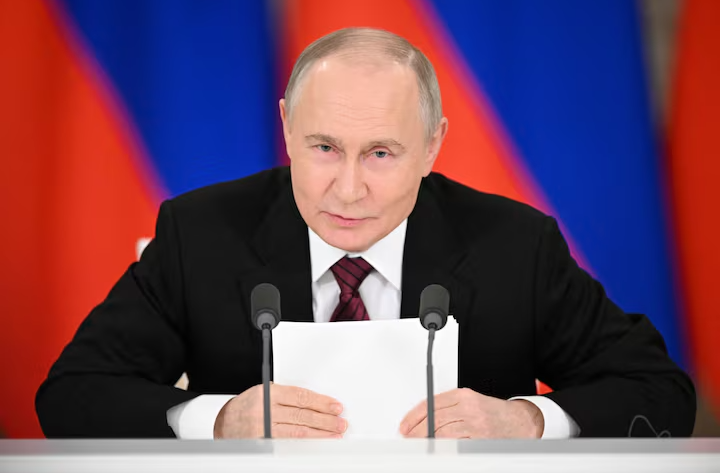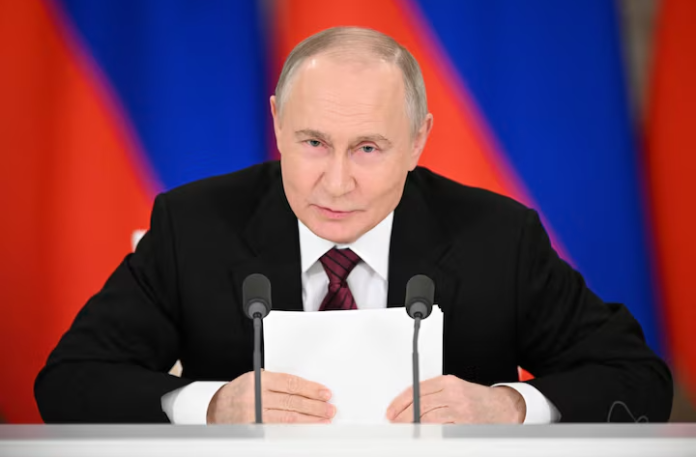In a move that has sparked widespread speculation, Russian President Vladimir Putin made an unannounced visit to the western Kursk region on Tuesday—his first trip to the area since Russian forces expelled Ukrainian troops last month.
The Kremlin confirmed that during his visit, Putin met with local volunteer organizations and toured the Kursk-II nuclear power plant. The surprise visit comes just weeks after Russia declared victory in repelling what it described as the largest foreign incursion on its soil since World War II.
State television broadcasted footage of the Russian leader speaking with volunteers, shaking hands with residents, and discussing regional security with acting Governor Alexander Khinshtein. He was accompanied by top Kremlin official Sergei Kiriyenko, signaling the strategic importance of the trip.
The visit is being viewed by analysts as a symbolic show of strength and a message to both domestic and international audiences. By physically setting foot in a region that was recently under attack, Putin is reinforcing a narrative of regained control and military dominance, while attempting to reassure Russian citizens that the state is capable of defending its territories.
Last month’s events were a major escalation in the ongoing war that began with Russia’s invasion of Ukraine in 2022. On August 6, in one of the boldest offensives since the conflict began, Ukrainian forces crossed into Russia’s Kursk region using advanced Western weapons and coordinated drone attacks. At the peak of the operation, Ukrainian troops claimed control over nearly 1,400 square kilometers of territory—an area roughly the size of Greater London.
The Kremlin quickly labeled the incursion a terrorist invasion, mobilized reinforcements, and launched a counter-offensive to regain the lost ground. By late April, Russia announced it had successfully pushed Ukrainian forces out of Kursk, claiming a significant military victory.

While Tuesday’s visit was not accompanied by any major policy announcements, the optics alone were powerful. For Putin, who is keen to maintain political support and project confidence amid growing international sanctions and internal dissent, standing on “liberated” Russian soil carries strong emotional and political value.
Western governments have yet to respond to Putin’s visit, but Ukrainian officials have downplayed the symbolic gesture, focusing instead on maintaining their defensive lines and securing continued military aid.
As the war drags into its third year, both sides are increasingly using symbolism and psychological tactics to sway public opinion and bolster morale. Putin’s trip to Kursk is just the latest move in a long chess game of power, perception, and propaganda.



